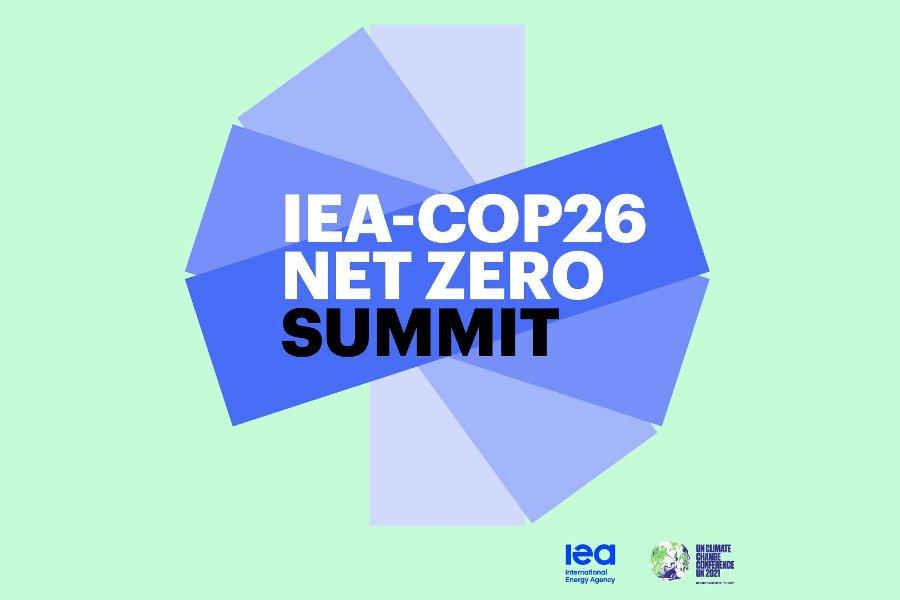
Both organisations call on the world’s leading economies to pave the way for net-zero greenhouse gas emissions within a generation, with the energy sector playing a crucial role.
In preparation for the IEA-COP26 Net-Zero Summit on 31 March, the European Commission and the International Energy Agency join forces to underline the essential contribution of the energy sector to achieving a climate neutral economy with net-zero greenhouse gas emissions. According to the findings of the Intergovernmental Panel on Climate Change, reaching net-zero by mid-century is required to keep global warming within 1.5 degrees and stay on the safer side of the Paris Agreement. Energy systems are at the core of this effort and they are highly interconnected with mobility, buildings, industry and land use sectors.
Executive Vice President Frans Timmermans said: “ The European Union is determined to reach net-zero by 2050 and we urge others to join us in this effort. Europe is anchoring its course with the EU Climate Law and the upcoming package of measures to deliver our -55% reduction target for 2030. The more countries join with their own commitments, the higher the impact of our actions across the globe, not least in access to clean energy. The world needs a clear and predictable pathway to a clean and safe future. There is no time to waste.”
Energy Commissioner Kadri Simson said: “Accelerating a sustainable clean energy transition is indispensable for achieving net-zero economies. This is a major pillar of the European Green Deal and our dialogues with international partners. A resolute focus on energy efficiency, renewables, green hydrogen, the reduction of methane emissions and a just transition will be key. That’s why we support the IEA work on the Global Commission on People-Centred Clean Energy Transitions, and we are ready to have a platform open to our partners to share the long lasting expertise developed by the European Commission in this field.”
IEA Executive Director Fatih Birol said: “The IEA is strongly committed to combatting climate change, and we have put clean energy transitions and the path to net zero at the core of our work. We are working with all our member governments and beyond on ensuring a sustainable, secure and affordable future for all citizens. The EU is a leader in the fight against climate change, and the IEA is proud to deepen our collaboration with it on accelerating clean energy transitions. We all need to roll up our sleeves as we step up our efforts to turn ambitions into reality.”
The European Commission and the International Energy Agency agreed to join forces to:
- Accelerate and expand the net-zero movement of governments and companies committed to help ing deliver the energy sector’s contribution to achieving net-zero economies;
- Develop a collaborative international net-zero campaign with interested partners to raise awareness and accelerate the transitions to net zero, as an urgent call for action.
- Team up with willing partners in support of African countries’ efforts to develop access to affordable modern energy services from sustainable sources and clean technologies, leapfrogging to advanced stages of sustainable development;
- Feed into the global conversation on net-zero greenhouse gas economies, welcoming the upcoming IEA global Net Zero by 2050 Roadmap on 18 May, which will be guiding future work across the IEA, including the annual IEA World Energy Outlook, and contributions to the first Paris Agreement Global Stocktake in 2023 on progress towards multilateral climate goals.
- Enable citizens to benefit from transition opportunities and to navigate disruptions. Governments in the EU and elsewhere should continue to explore and step up new ways to share best practices in designing energy policies towards climate neutral economies that are inclusive, including as part of the work of the IEA’s Global Commission on People-Centred Clean Energy Transitions.
For more information:
- EU climate action and the European Green Deal
- IEA-COP26 Net Zero Summit conference on 31 March 2021
- 5th Ministerial on Climate Action meeting on 23 March 2021
- 12th Clean Energy Ministerial meeting and 6th Mission Innovation meeting on 31 May – 6 June.
Details
- Publication date
- 30 March 2021
- Author
- Directorate-General for Climate Action
